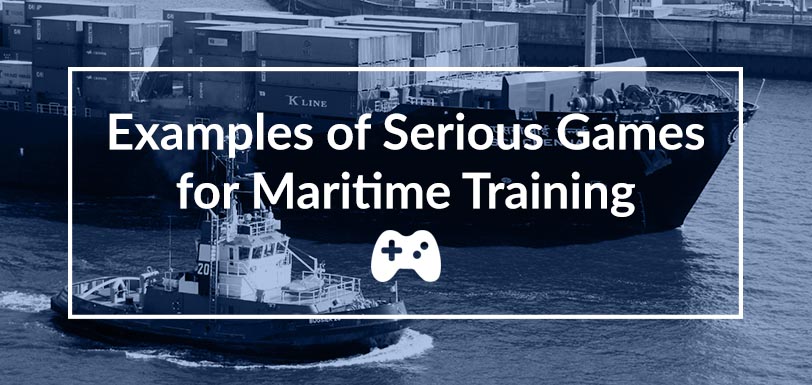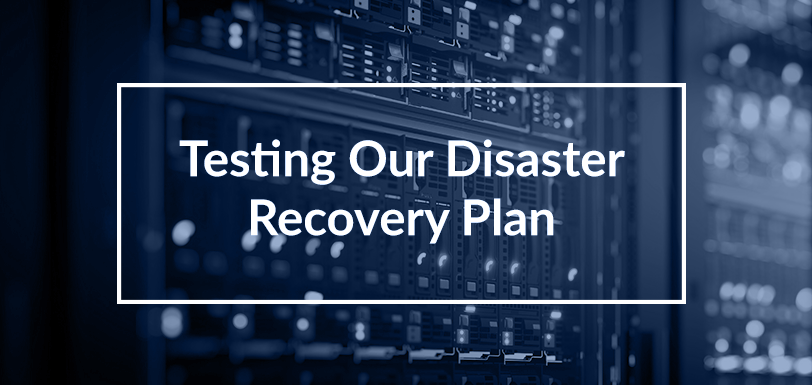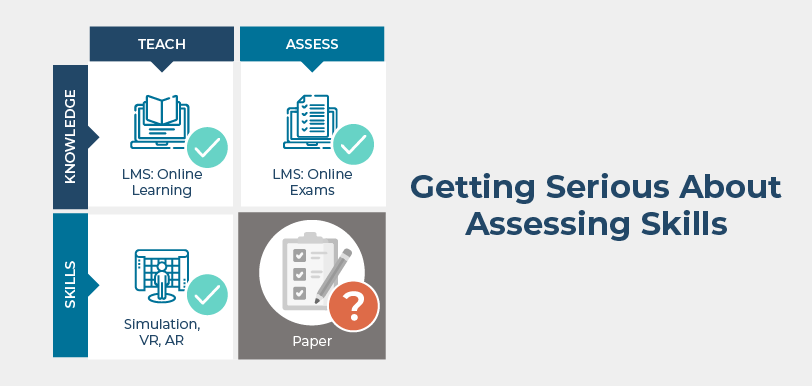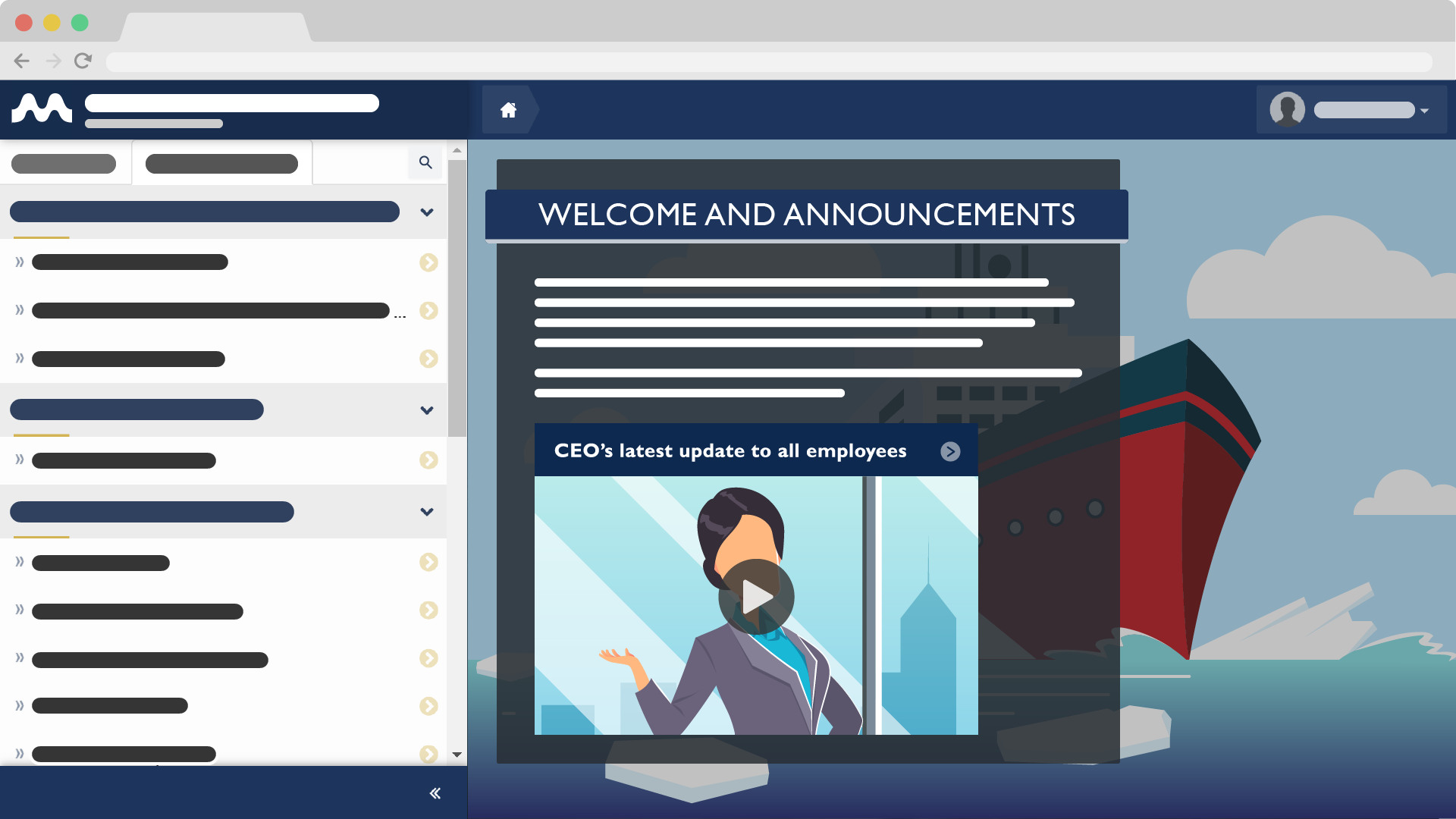Examples of Serious Games for Maritime Training
Apr 20, 2017 Murray Goldberg 0 Gamification, Maritime Training, Training ContentIntroduction
We are all, by now, aware of the use of eLearning in maritime training. Far fewer of us are aware of the use of electronic games (called “serious games” or “gamification”) as a training tool. Even fewer believe them to be a valuable tool in the trainer’s arsenal. But serious games for training are not a new phenomenon. They have been around for decades and have some very serious followers – including, notably, the military. They are also in use in a variety of other industries including the maritime industry.
This post is the second (and last) in a series that looks at gamification in the maritime industry. It provides some examples of their use within the industry. While the previous blog post was able to give some arguments for the effectiveness of serious gaming, it fell short of giving absolute proof. The breadth and depth of examples presented here attests to the belief, by users of serious games, that they do indeed work.
Before concluding our look at serious games, a reminder that if you would a notification each time a new article comes out, please subscribe to the blog. Now – on to our conclusion of gamification.
Gamification
In case you missed the previous article introducing serious games, here is a quick recap.
In general, a serious game is any game-like program with a primary intent other than simple entertainment. For our purposes, we will restrict ourselves to programs which have an inherent “reward system”, and for which the primary intent is training or education.
A reward system is a means by which the player gains some explicit or implicit reward by succeeding at the game. Examples of reward systems include the gaining of points, competition against other players, opening up new levels of the “game”, increasing challenge, etc.
To simplify further, you can think of serious games as the combination of a simulator (e.g. bridge simulator) with a reward system. The intent is to increase a user’s motivation in learning.
Studies have shown that serious games:
- improve participation rates
- improve teamwork
- increase time on task
- deepen engagement
- cause trainees to return to training more often
- improve training completion rates
Given these benefits, it is not surprising that serious games have some serious followers. Let’s look at some examples of serious games and other useful serious games resources.
Examples of the Use of Games in Maritime Education
A while back, I received a note from Mark Woolley, the Chief of Staff in the Office of the President at SUNY Maritime College. Mark has been thinking about gamification for some time now and wrote an excellent article about its applicability to Navy training.
Mark pointed me to a number of examples of serious games that he has used in his teaching. Please note that none of this should be taken as an endorsement of the games by Mark or SUNY – these were simply comments made in response to the blog post on gamification.
One example is ShipSim – made by VSTEP in the Netherlands. In commenting on ShipSim, Mark said: “I actually used the game ShipSimulator for our seamanship and navigation class and as a club activity just to teach Midshipmen the basics on ship handling and proper orders to the helm”.
According to the ShipSim website, ShipSim is a “… game that pushes the boundaries of simulation gaming … Featuring stunning visuals, accurate vessel behaviour, famous locations and ports all over the world and missions based on actual events”.
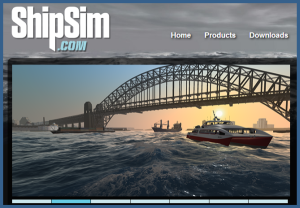
ShipSim
Another example is Dangerous Waters from Sonalysts. According to Mark, his students “… had a full blown anti-submarine wargame going with future aviators flying ASW helos and planes, ship drivers driving and working the consoles found on older warships, and submariners doing the same on sub platforms. These midshipmen were doing things I did not do until I was a Lieutenant”.
From the Dangerous Waters website, the game allows “… total control over multiple air, surface, and submarine platforms in a modern-day naval environment! The game allows you to focus your attention and to take direct control of individual crew stations and also plan and execute combined arms naval strategies from a top-down ‘Commander’s Eye’ perspective”.
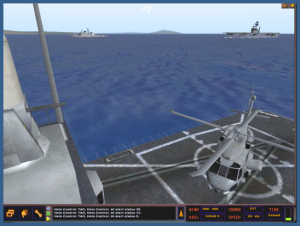
Dangerous Waters from Sonalysts
Mark also mentioned that he has used a game from the Naval Academy for ethics training which “provided an ethical dilemma and choices for the midshipmen to make. Based on each choice the scenario unfolded a different way and limited their future choices”. He’s also experimenting with another VSTEP game called RescueSim which, according to their website “allows emergency crews to experience the incident as they would in real-life. They assess the situation and determine the best response strategy, implement it and then observe the consequences of their decisions”.
Thanks again to Mark for all that great information.
Maritime Serious Games Providers
There are now a number of companies that are developing serious games for the maritime industry. Two examples of companies that are doing very interesting work are MYMIC and VSTEP. It would be easy to write a whole article on each company and their products, but I’ll just mention them briefly below so that you can explore on your own.
The first company, MYMIC, produces training simulation and gaming products for the maritime and other industries. I’ve spoken with some of the people at MYMIC and they are a passionate and knowledgeable group of people who understand the power of serious games. Their simulation/serious game products include:
- Port Safety Awareness Training
- Shipyard Safety Awareness Training
- Marina Safety Awareness Training
- Complex Incident Response Training
The second company, VSTEP, develops simulators and virtual training software. According to their website, using “interactive 3D technology from the computer gaming industry, VSTEP creates training applications, simulations and serious games that allow people to build their skills in a practical and cost effective way”. Their current line of products includes, among others, the following:
- NAUTIS – a range of simulations for the maritime industry including ship handling, communications, Radar, GMDSS, and others.
- RescueSim – (mentioned above)
- Crowd Control Trainer – a simulator to train crowd management and response strategy.
One Final Word on the Power of Gaming
Before leaving this topic, I want to mention one interesting story that speaks to the power of serious games and their effect of increased motivation. The story is about a serious game called “Foldit”. Foldit is not a training game, and is not aimed at the maritime industry. Instead, it is a serious game which was developed to use the power of “the crowd” and the motivation of the gaming environment to solve a difficult scientific problem. It is a great example of how gamification can yield results not easily obtained otherwise.
The game itself is about protein folding. For our purposes, all we need to know is that proteins can be physically folded from their unfolded state into their “native state”. It turns out that prediction of these native states is a difficult problem that is not easily solved by computers. Instead, researchers made a game to engage people in the process of folding proteins using the brain’s “natural pattern matching and reasoning abilities”.
Now here comes the interesting part. There is a particular monkey virus that has defied attempts by scientists to decipher for 15 years. The virus was made available in the Foldit game and only 10 days later the 15 year-old problem had been solved by players.
Why was this elusive problem solved so quickly once gamification was applied? No doubt the motivation to solve the problem offered by the game environment played a big part. There is little doubt that the same effects of serious games can yield excellent results when applied to maritime training.
Follow this Blog!
Receive email notifications whenever a new maritime training article is posted. Enter your email address below:
Interested in Marine Learning Systems?
Contact us here to learn how you can upgrade your training delivery and management process to achieve superior safety and crew performance.


